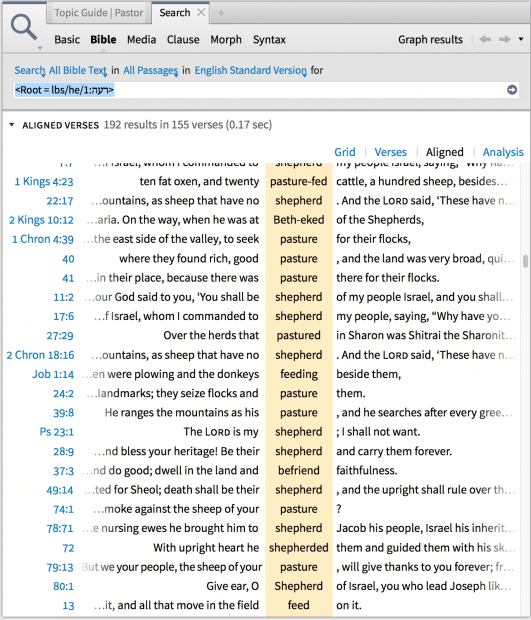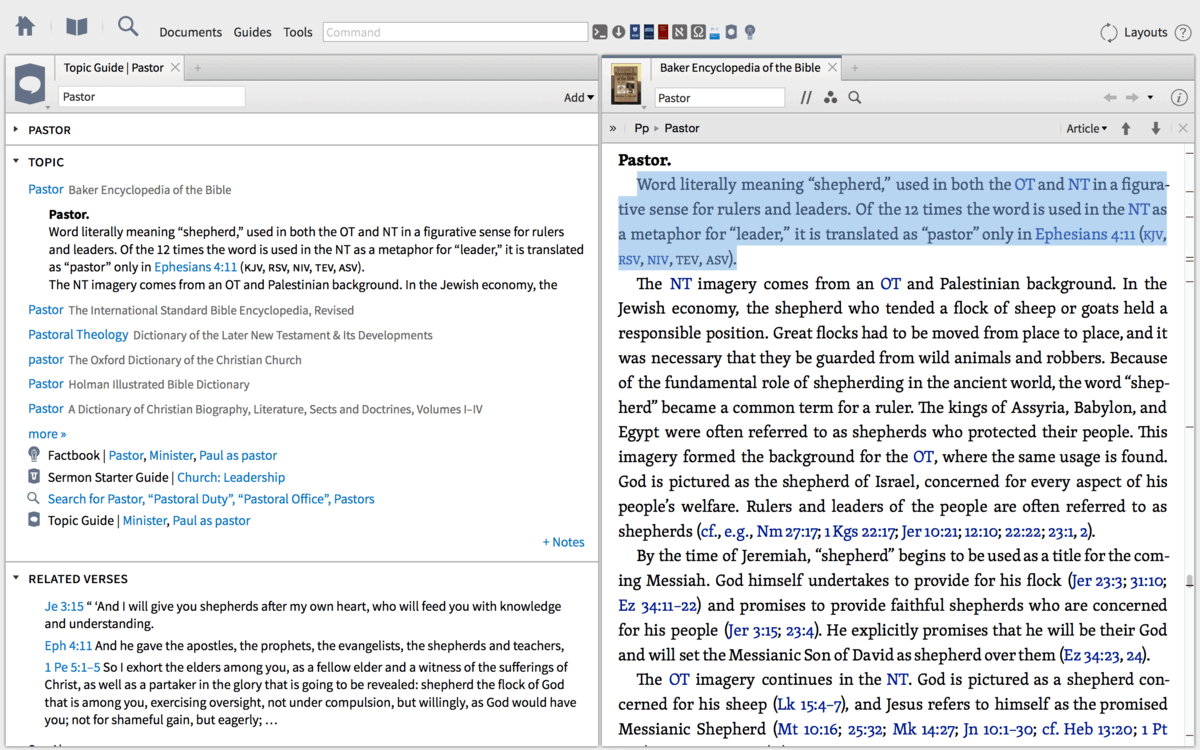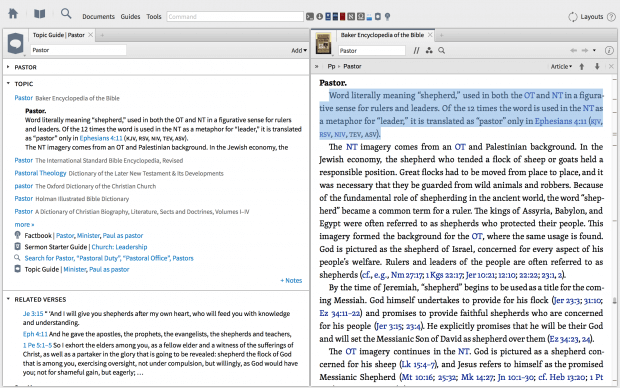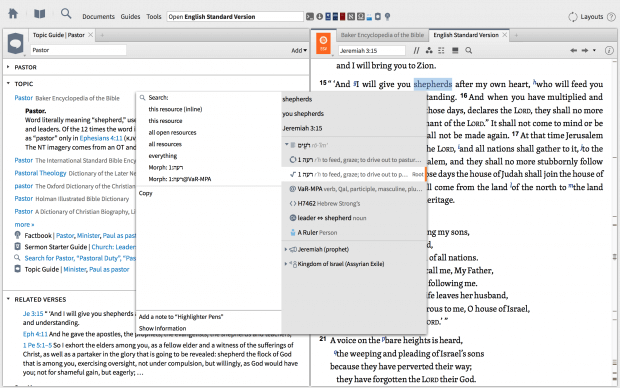Pastor Appreciation Month is almost here! Here at Logos, we celebrate pastors throughout October by offering deep discounts on valuable pastoral resources. We highlight commentaries, counseling works, and sermon archives that provide valuable tools for pastors. Sign up at the end of this post to receive each day’s deals.
As we prepare to honor them this month, I’d like to stop and reflect on pastors.
Who are pastors?
First, open Logos Bible Software and run a Topic Guide search for “Pastor.”
Among my results, the Baker Encyclopedia of the Bible entry reads:
Word literally meaning “shepherd,” used in both the OT and NT in a figurative sense for rulers and leaders. Of the 12 times the word is used in the NT as a metaphor for “leader,” it is translated as “pastor” only in Ephesians 4:11 (KJV, RSV, NIV, TEV, ASV).
The article continues:
The NT imagery comes from an OT and Palestinian background. In the Jewish economy, the shepherd who tended a flock of sheep or goats held a responsible position. Great flocks had to be moved from place to place, and it was necessary that they be guarded from wild animals and robbers. Because of the fundamental role of shepherding in the ancient world, the word “shepherd” became a common term for a ruler.
Whether you have a pastor, a bishop, an elder, a congregational leader, or any other type of clergy, as a leader in the church, you play an important role.
The Old Testament pastor
Among the “Related Verses,” Logos presents Jeremiah 3:15. In this verse, God promises to give his people Israel, “shepherds after my own heart, who will feed you with knowledge and understanding” (Jer 3:15).
To look for more Old Testament occurrences, I simply right click on the word “shepherds” in the text and select “Root” from the context menu.
Then, I select Search this resource.

- Abel (Gen 4:1)
- Jacob (Gen 30:36)
- Moses (Ex 3:1)
- David (1 Sam 16:11)
This type of search provides valuable information for a character study. But the most familiar passage may be Psalm 23, wherein the psalmist writes, “The LORD is my shepherd; I shall not want.”
Jesus as the ultimate shepherd
As we saw, Psalm 23 pictures Yahweh as our shepherd. Does this continue into the New Testament?
The Baker Encyclopedia of the Bible continues:
By the time of Jeremiah, “shepherd” begins to be used as a title for the coming Messiah. God himself undertakes to provide for his flock (Jer 23:3; 31:10; Ez 34:11–22) and promises to provide faithful shepherds who are concerned for his people (Jer 3:15; 23:4). He explicitly promises that he will be their God and will set the Messianic Son of David as shepherd over them (Ez 34:23, 24).
It would seem then, that Jesus himself was a “pastor.” Hebrews 13:20-21 clearly states that Christ’s sacrifice is evidence of his shepherding.
This is an exciting idea. Jesus himself appropriates this imagery for his disciples after his resurrection. John 21 recounts the intimate encounter between Jesus and Simon Peter, which culminates with Christ’s admonition: “Feed my sheep.” (Read John 21 now.)
Pastors today
The dictionary article concludes:
Pastors and teachers together formed a group which complemented the work of apostles, prophets, and evangelists. The titles “bishop” and “elder” refer to the same office in the NT (cf. Acts 20:17, 28; Ti 1:5, 7), and “pastor” seems to be practically synonymous with them, as shown by Jesus being referred to as “the Shepherd and Bishop of your souls” (1 Pt 2:25 kjv). The verb “to shepherd” is used to describe the work of local church leaders (Jn 21:16; Acts 20:28; 1 Pt 5:2), and often the congregation is called a flock. It is the pastor’s responsibility to build up the body of Christ by watching over the congregation (Acts 20:28; Heb 13:7) and countering false teaching (Acts 20:29, 30).
Prepare for the month of October by prayerfully considering how you can bless your pastor. As Charles Spurgeon once said, “A church is not a complete church without a pastor, its elders, and its deacons.”




![Hebrews 13:20–21 [widescreen]](https://www.logos.com/grow/wp-content/uploads/Hebrews-1320–21-widescreen-620x349.png)



